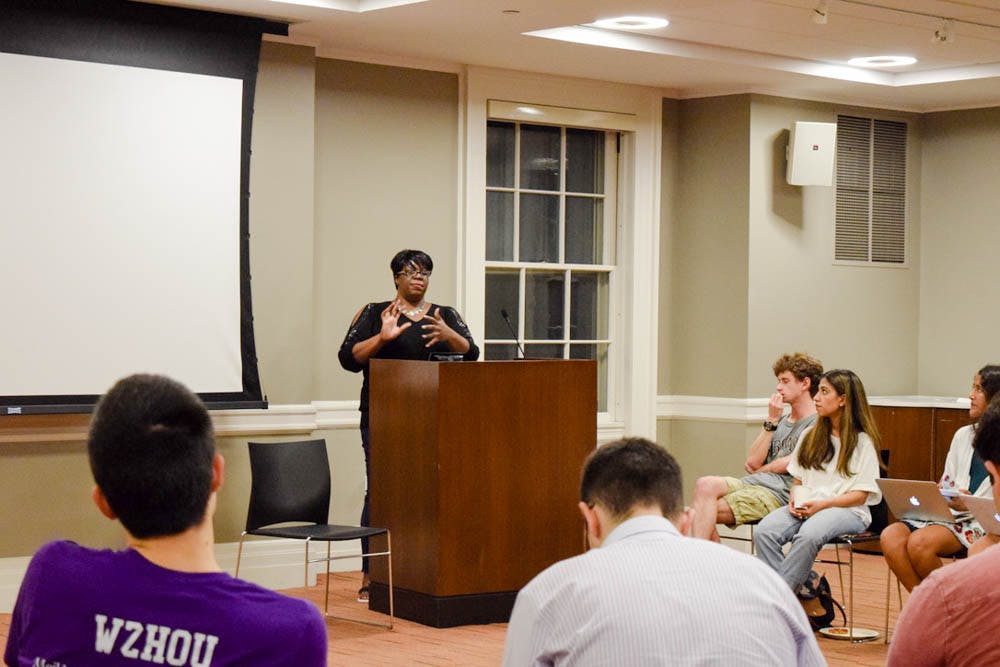The Undergraduate Council of Students held a discussion with Title IX Program Officer Rene Davis at its general body meeting Wednesday night about current Title IX practices and what navigating the Title IX process can look like at the University.
UCS had planned to co-host a town hall to “to review (Secretary of Education Betsy) DeVos’s Title IX guidances and discuss what it could mean in practice at Brown University,” according to an Oct. 3 Today@Brown event listing, but amended the event because those guidelines have not officially been released yet, Chair of Student Wellness Shivani Nishar ’20 said.
“We thought it would be better to postpone that event so that we can talk about the official guidelines (when they) are released for public comment,” Nishar said.
Davis opened the floor for questions and feedback on the Title IX process at Brown.
“I know that Title IX is a contentious process and people don’t like it. If you have constructive feedback or criticism of the process, that is welcome,” Davis said, adding that she also likes to hear about what the office does well “so that we can continue to replicate that.”
Davis fielded several questions from those in attendance in addition to inquiries submitted anonymously, which Nishar read aloud.
UCS Treasurer Austin Lessin ’19 asked Davis what, “given the current political climate, (are) some of the … risks you see associated with people coming forward,” and whether there might be “less interest in people coming forward.”
Davis noted that “we have centuries of bad behavior around survivors coming forward and survivors being believed, and so I think I’m still fighting that, let alone the current climate.”
Although there may be “reputational risks around people coming forward, I feel like that’s the only way we’re going to make change,” she said. “We really have to understand what’s happening, how things are happening, who is creating harm, what communities are coming forward, that’s all really important.”
In response to a question about what the Title IX Office is working to change, Davis highlighted efforts “to rebuild trust around our process in that we do care about the experience of individuals that are moving forward, and that we are not going to sort of retraumatize individuals … using the process.”
Davis offered a two-fold approach in response to a question about holding friends accountable if they are contributing to harm.
“We have to one, destigmatize what it means to support someone who has caused harm,” Davis said. “We need to recognize that that work needs to happen and we need to create a capacity for that to happen.”
Second, it is important to “call your friend out,” Davis said.
“It’s not just ‘don’t sexually assault someone,’ … it’s about calling them out around the behaviors before it gets to the midnight assault.”





